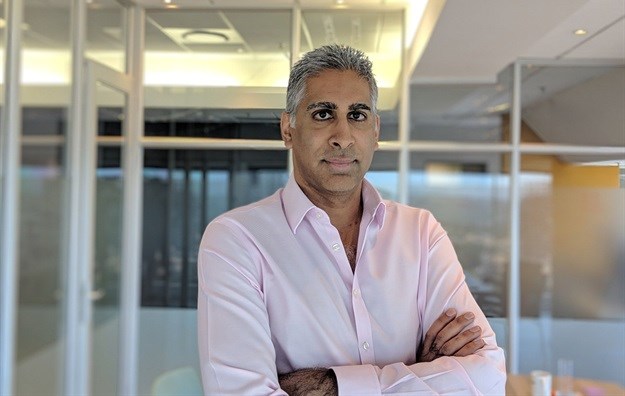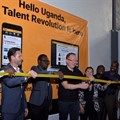#RecruitmentFocus: Recruiters must embrace technology to stay relevant, says Giraffe CEO

After registering on the platform for free, which works on most cell phones, a CV is generated for the jobseeker and added to the Giraffe database. As vacancies become available, job opportunities are sent to select candidates via SMS. The low-cost automated service utilises its unique technology to source, screen and even schedule interviews, reducing staff attrition by shortlisting only the most suitable candidates for the job. Since its launch, Giraffe has invited over 150,000 candidates for interviews.
We interviewed Anish Shivdasani, cofounder and CEO of Giraffe, as part of our #RecruitmentFocus to get his take on disruption in the recruitment space, how technology can help solve unemployment, and to find out what lies ahead for the startup after it secured its second round of equity funding earlier this year.
Giraffe, and similar platforms, basically eliminate the need for job boards, streamlining the recruitment process for employers. Do you see a future for job boards in the next 5-10 years in SA?
Shivdasani: I think job boards will have to evolve. Just as online classifieds have tended to evolve towards becoming marketplaces - being more specialised and adding more sophisticated features beyond just listings (e.g. payments, reviews, recommendations), so too will job boards need to change to stay relevant.
You said in a previous interview, "Agencies are prohibitively expensive. I believe that it is a dying industry." Does the future of work have a place for recruitment agents / labour brokers? How would they have to evolve their service offering to stay relevant in the face of advancing technologies?
Previously, recruitment agencies were necessary because they had exclusive access to candidates. LinkedIn has changed that, reducing the information advantage and enabling businesses to recruit directly. As a result, recruitment agencies have come under a lot of pressure as they can no longer justify charging such high fees. I believe generalist recruitment agencies will continue to decline, but there is definitely an opportunity for specialist recruiters who have deep industry knowledge and contacts, and senior executive head-hunters whose high-touch, consulting-type service is necessary for board and CEO-type recruitment mandates. Both specialist and senior executive recruiters will need to embrace technology to stay relevant. For example, we’re seeing an emergence of hybrid models such as hired.com, Vettery and OfferZen who are effectively using technology to augment the traditional agency model.
How has AI and machine learning been integrated into the Giraffe platform so far?
So far we’ve integrated various candidate selection and screening algorithms into the platform that enable us to select the most suitable candidates for any position based on previous work experience, job preferences, location and previous interview performance. However, there is a lot of scope to implement more advanced AI tools as we collect more data on candidates and employers.
You noted in a presentation at DisruptHR Johannesburg 2.0 earlier this year that big data, machine learning and mobile are forming part of the current wave of technologies in the recruitment sector - could you expand on this.
Mobile is a key factor because mobile is now the primary way for people to access the internet and connect with each other. As such, mobile is critical in recruitment for sourcing, screening and connecting candidates with opportunities. Big data is relevant because there is a huge amount of data on candidates and jobs available in the public domain, e.g. candidate data on LinkedIn, job listing data on Google jobs. Once large amounts of data exist, machine learning techniques can be used to automatically identify the right candidates for specific jobs, or analyse trends in the job market and how demand for skills is evolving.
With an unemployment rate over 27%, how do you envision recruitment technology helping to address SA's jobs crisis?
Recruitment technology has a major role to play, specifically in enabling access between jobseekers and opportunities. Giraffe focuses on medium-skilled candidates who would typically earn between R3k and R15k per month. Most of these candidates don’t have PCs and internet at home, so access to opportunities is a real problem for them. Using Giraffe’s free mobisite, candidates can make a CV on their cell phone for free, thereby gaining access to hundreds of job opportunities.
However, whilst technology is necessary, it is certainly not sufficient to reduce unemployment. South Africa’s unemployment rate is high largely due to sluggish economic growth, a highly exclusive economic structure, inflexible labour laws and woefully inadequate education systems. All of these things need to be tackled if we are to make a meaningful reduction in unemployment.
Giraffe made a commitment earlier this year to support the principles of the YES initiative, announcing that it had embarked on a programme to identify job opportunities specifically suitable for first-time jobseekers. What have you achieved thus far in terms of making good on this commitment?
Giraffe has been supporting the YES initiative throughout this year in various ways, including sourcing candidates for the YES 12-month work experience programmes at several corporates. Additionally, Giraffe has made significant effort in helping first-time jobseekers on our database get access to opportunities that require no prior work experience, especially in the call centre sector and insurance sales sector. These types of jobs act as a great springboard for jobseekers to get initial work experience, like learning how to deal with customers, and improve their future employability.
With Giraffe having completed its second round of funding earlier this year, how do you plan on expanding the platform’s current offering?
Until the last funding round, we had a very small development team and so our product had minimal features. Now we plan to add more features, such as new screening tools to improve candidate quality. We also want to make the platform more flexible so that it can support the needs of both large corporates who recruit high volumes of candidates, as well as SMEs who have much smaller volume requirements.
Giraffe currently only operates in South Africa but has plans for international expansion in the next year. Where are you taking Giraffe in 2019?
The current plan is to start international expansion at the end of FY19. In terms of the next market, we still need to figure out what makes most sense. One line of thinking suggests moving into another African market, another suggests we might look more broadly at emerging markets in general. Watch this space!
For more info on Giraffe, go to www.giraffe.co.za.








































